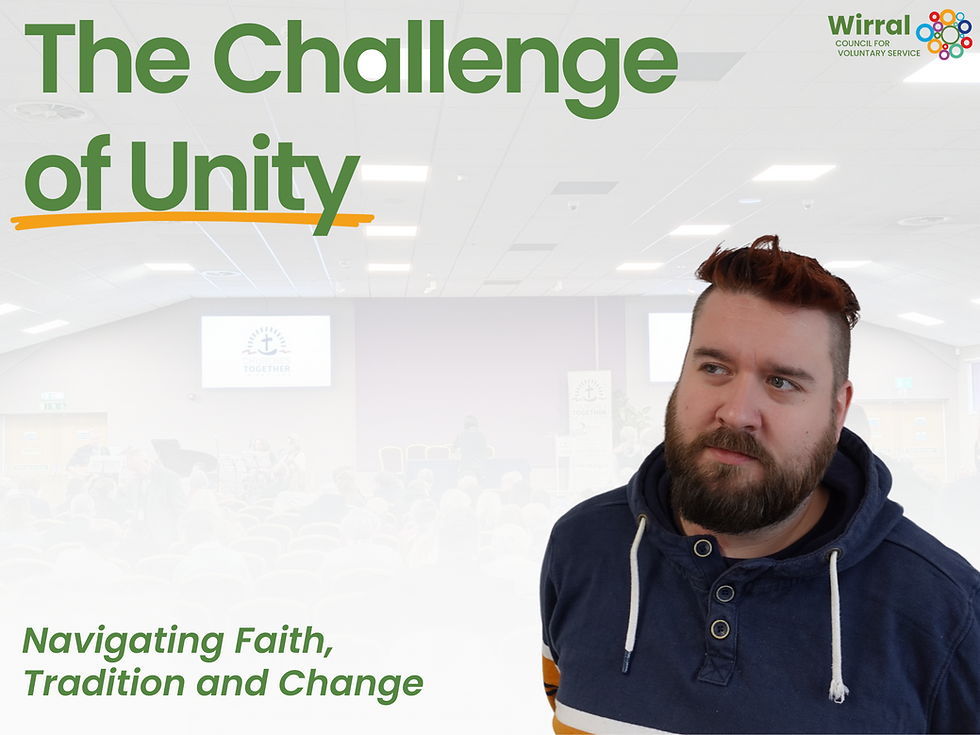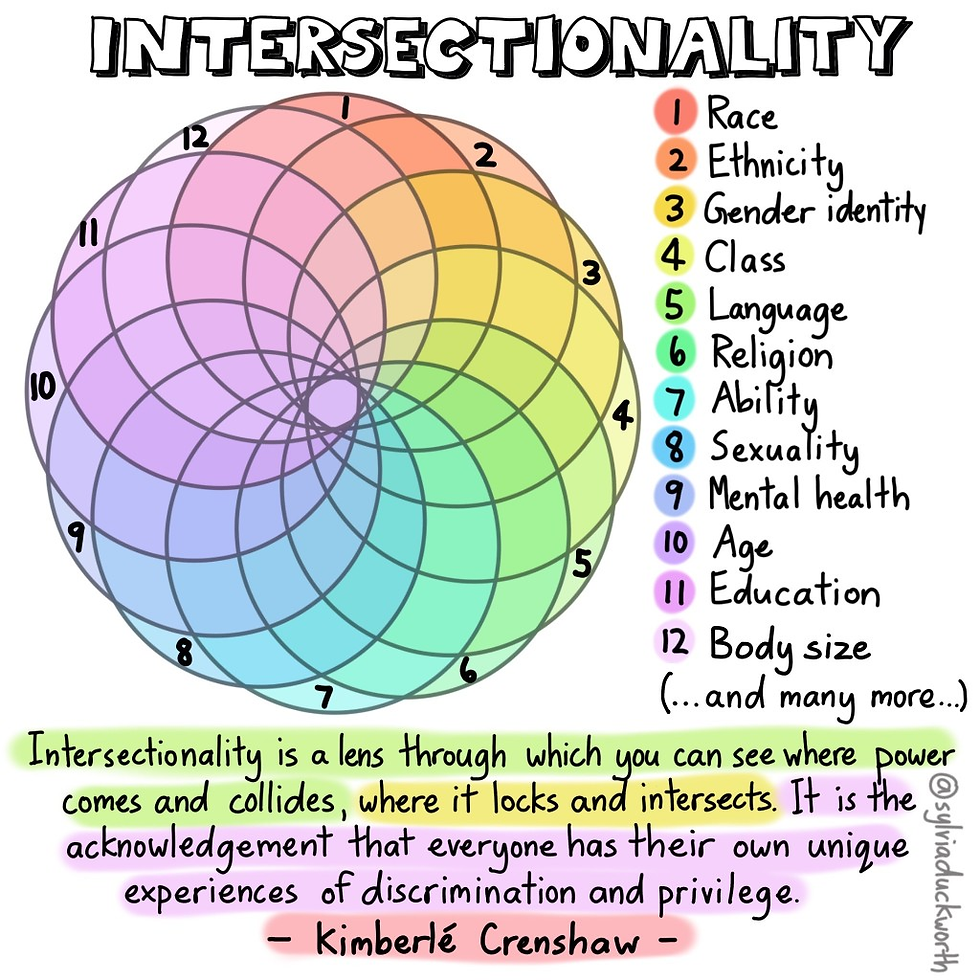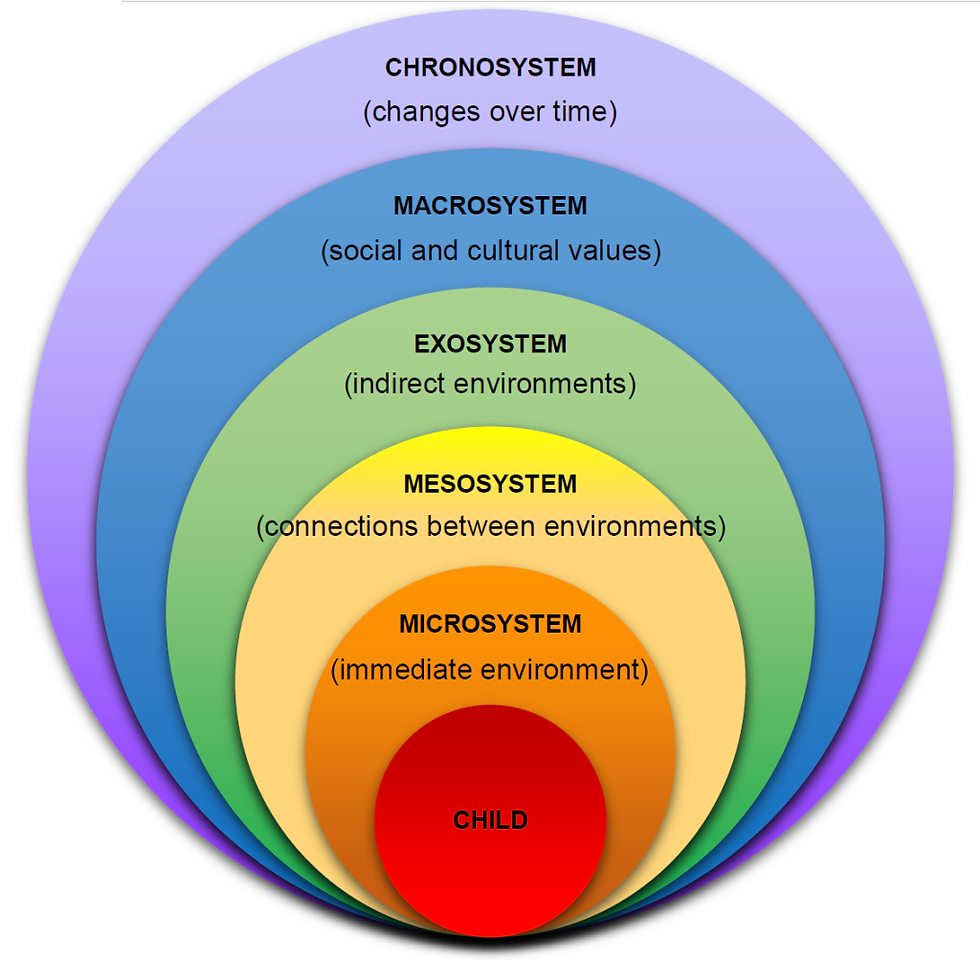An opinion piece by Alex Fisher, Faith Development Officer at Wirral CVS

I am always fascinated by the topic of unity. I'm not particularly academic, and although I do enjoy learning, I have always relied on practical experience to shape me over relying on theoretical learning. My nature and temperament has always meant I am much more of a hands-on learner, and the gift of ADHD means I have a really hard time sitting still, so the prospect of going to a three-day conference on unity in the Christian church was both an exciting and daunting prospect. On the one hand, I will get to have one-on-one conversations with an incredible range of practitioners from every corner of tradition, on the other hand, I have to sit still and listen to speakers for several hours...
I was asked to represent Churches Together Merseyside at the Churches Together in England Forum, the title of which was "One but Not the Same". My experience of Church has always been within non-denominational settings, so in hindsight I entered into this with a naivety in the sense of how different we might actually be.

Coming from a Community and Voluntary background, professionally I have always been aware of the intersectionality that is such a keen focus within the sector. Each group is led by the challenge of supporting someone or something from it’s own standpoint. However, they always occupy positions on a spectrum that overlaps with so many others due the complexity of the system itself. The objective is different, the approach is different, but the heart and sentiment of the action is the same. This unifying nature allows collaboration and there is joy in the opportunity to not be alone in the journey. However churches face a different barrier when approaching unity.

Denominations do not stand alone in their journey, since they are large complex institutions in their own right. They take the conversation from the micro-system (local experience and interaction) to the exo-system (Impacting your personal systems and networks from above). The autonomy is removed from individuals and placed in systems of management, thus you are no longer operating as an individual with your own intersectionality but rather a representative of a structure that has its own viewpoint entirely, and while at the local level you may still have the opportunity to engage in things around you, you are limited to the views and opinions of those above you.
It goes without saying that these institutions are complicated. Although they might be a collection of people who operate the same tradition of worship, their viewpoints swing wildly from the left to the right and everywhere in between. When you add on top of that the depth of theology and the differences that creates, you end up with structures that are incredibly cumbersome and difficult to steer in a single direction.
So when arriving at the conference to see that a large proportion was dedicated to the justification of unity, I was a little disappointed. I felt like this was a conversation that had already taken place, at least in my world, with widespread acknowledgement that we are better and stronger together. Over the course of the 3 days, I began to understand how incredibly privileged I have been in the experience of unity. I have worked in a sector that have invested a lot of time and energy over the last decade in unifying itself and is quite far along in an ongoing process, while additionally my own experience of faith has allowed me the autonomy to be part of that process.
I think there is an expectation from a lot of people that something happens in the conversation about unity. That it’s the kickstarter to everyone getting along, and while I understand that in many cases convincing people of something is the first step to action, without action there really isn’t anything. Talking about unity doesn’t really ever materialise it on it's own. The best examples of unity I can point to in almost every context are when people just start doing it. And yes it’s messy, there are problems, but without starting that journey it’s almost impossible to predict what those problems will be. Unity comes through trust, trust that we have each other’s best interests at heart, trust that we can compromise and learn to give way, trust that we can move in the same direction even if we want to do it differently. Trust is not something you build from solely having conversations about it.
I empathise with these larger structures. It’s the equivalent of turning around a tanker ship a millimetre at a time and I respect the continued effort of those who work at this level. It must be frustrating to know that unity is the best course of action, but the complexity of it be so overwhelming that moving even an inch takes considerable effort. The important thing to remember is that these tankers are moving, however slowly, and I myself am keen to be a part of that shift as a proverbial tugboat supporting the turn. For me that support is best directed locally and my ambition will be to foster and promote the unity at the local level to be an example of what can be achieved by working together.
At the upcoming Faith Forum (26th March), I’d love to get your opinions on what I've written here and to hear your thoughts on unity and the challenge ahead of us. You might think I am way off the mark, or perhaps in full agreement and ready to get moving! Whichever it might be, coming together as a faith sector is the first, albeit not the only, step in this journey for us, which we aim to do with the inaugural Faith Forum this month.

Comments